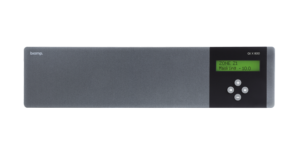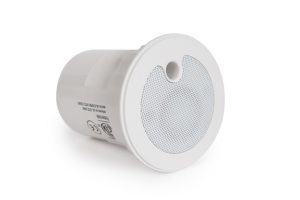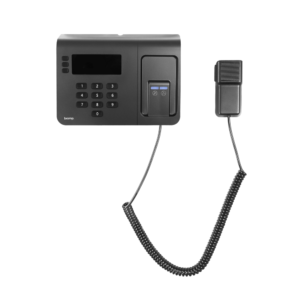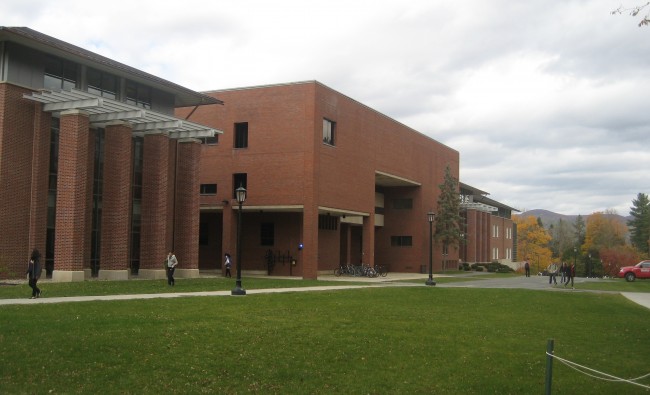Education
Sound Masking in Education
Protecting your students’ privacy isn’t just an add-on – it’s the law. The Family Educational Rights and Privacy Act (FERPA) mandates that post-secondary institutions take all reasonable efforts to safeguard student information including how the information is collected, stored, used, and released. Many institutions have established effective security measures to protect the data stored on their servers, but overlook the need to safeguard client information during its collection and use. Sound Masking solutions help protect speech privacy by making it more difficult to overhear people speaking.
In addition to providing a more secure and private environment for your students, sound masking can also help reduce distractions. Adding sound masking in education settings, such as to your libraries, student centers, classrooms, and other study spaces will ensure minimal disruptions to students while they are studying or taking tests.
“Our library was so acoustically lively, the students were shushing the librarians! Now, our space is as appealing functionally as it is visually.”
– David Pilachowski, Director of Libraries Williams College
Industry Challenges
- Each day, hundreds of students share sensitive information relating to finances, grades, housing, and personal health.
- There is a high risk of personal information being overheard in adjoining corridors, waiting rooms, and communal spaces.
- Many older facilities include high open ceilings and large reflective surfaces like glass windows and brick walls, creating more noise distractions through reverberation.
- Libraries, Computer Centers, and Student Unions
- Health and Counseling Centers
- Open Offices
- Private Offices and Conference Rooms
- Research Laboratories
- Customer Success Stories
Challenges
- Large expansive facilities with open ceilings and large reflective surfaces like glass and brick contain little to no sound absorbing materials.
- High concentration of people leading to a high level of distraction.
- Libraries can be too quiet so any sound can be easily heard.
Cambridge Sound Management sound masking systems
- Reduce conversational distractions by reducing the intelligibility of speech.
- Increase the comfort of the students and staff by increasing individual privacy.
- Help achieve LEED certification while maintaining a productive acoustic environment.
Challenges
- Risk of personal and financial information being overheard.
- Patients can feel stressed in a noisy environment.
- Patients feel uncomfortable speaking freely to medical professionals for fear of being overheard by other patients.
Cambridge Sound Management sound masking systems
- Improve patient comfort.
- Increase patient privacy by reducing the intelligibility of speech.
Challenges
- An increase in operating costs have led to businesses needing to maximize existing space, leading to more employees in the same workspace.
- With smaller workstation footprints, noise levels increase significantly and worker speech privacy decreases.
- Cubicle wall heights have dropped significantly to enable better worker collaboration and provide a more open environment.
- Most worker mistakes and lower individual productivity can be attributed to workplace distractions such as overheard conversations.
Cambridge Sound Management sound masking systems
- Help to ensure FERPA compliance
- Improve worker performance nearly 10% by reducing conversational distractions according to scientific research.
- Address the need for acoustic treatment outlined in upcoming LEED Commercial Interiors Certification. Also mitigates the acoustic issues created by windows to meet the LEED requirement for daylighting and views.
Challenges
- To minimize construction costs, demountable walls are being installed which only extend up to the ceiling, not to the deck, allowing spillover of sound through the plenum into adjacent work areas.
- Workers expect a level of speech privacy in collaborative spaces, such as conference rooms, that is rarely accomplished with the construction techniques being used.
Cambridge Sound Management sound masking systems
- Help to ensure FERPA compliance.
- Cover sound that “spills” between adjacent work environments.
- Mask conversations in adjoining hallways from being distracting to conference room meeting participants.
- Mask conversations in conference rooms from being overheard in adjoining offices or hallways.
Challenges
- Lack of acoustic blocking and absorption materials allows sound to travel freely.
- Several lab bench workstations typically share one large room.
Cambridge Sound Management sound masking systems
- Cover sound that “spills” between laboratories through the plenum.
- Mask conversations in adjoining hallways from distracting lab researchers.
- Provide for a sense of privacy in shared lab spaces.
Our educational customers are highly satisfied with the results of our sound masking system from Cambridge Sound Management. Learn more about their results in the following case studies.







